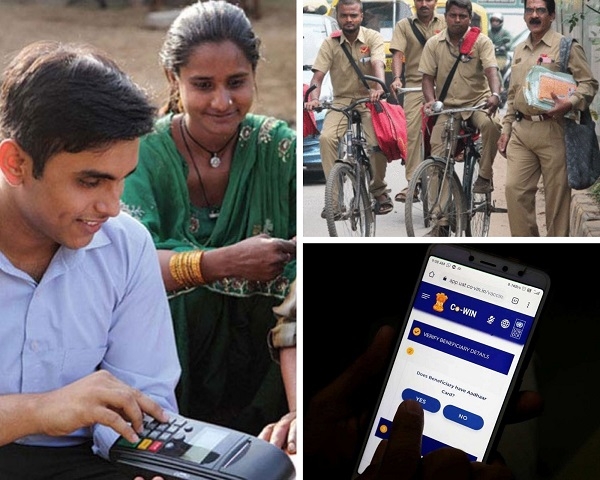Vaccines- One financially inclusive solution for registration!
Total Views |
India is undertaking the world's largest immunization drive after the regulatory approval of two COVID-19 vaccines and a nationwide dry run. With this questions arise about how are the vaccines reaching people in every nook and corner of the country irrespective of their socio economic background. While there are 'experts' who are addressing many of these questions in many of the newspapers, what I think on financial inclusion has brought an answer to my mind!
Inoculation is voluntary and now after the frontline workers, the phases are catered based on an individual's degree of need for inoculation there is a need for mass registration to decide on who, when and where to inoculate. To do this the government has come up with an app and a website called CoWIN (details of which are still being fine tuned) where individuals can self register or someone else can do it for them like an ASHA worker or a district administrator. Given household level smartphone penetration is around 40 per cent in India, it seems that around 55 crore adult Indians would need help registering for the Cover vaccine. Most of these 55 crore will fall in one or more of these categories- poor, illiterate, rural population, the one Jan Dhan Yojana is aimed at.

While ASHA workers and district administration can certainly help in registering people for the vaccine, they alone would not be sufficient for a quick and full registration which is a must for efficient planning and delivery. India has around three lakh postmen, 1.55 lakh post offices or 8 lakh bank mitra or business correspondents located in all corners of the country and a postman visiting every village in the country to deliver postal and financial services. Most of these people already have smartphones and are at least moderately technologically savvy.
As we speak, India Co-Win Action Network and its team of volunteers continue their work throughout the country, to assist those needing immediate relief and support.
The process of registration is quite similar to that of opening a bank account, a process which above mentioned agents have been doing for a while and hence can easily help people register for the Covid vaccine. Many of the people who need help in the registration will already be interacting with a postman, bank mitra or a business correspondent for accessing financial services and by delivering this crucial and urgent service, these agents can build their customers trust in them and perhaps even attract new and previously unbanned customers. The government further can provide a small monetary incentive for each registration the postmen, bank mitra and business correspondents perform to cover their expenses.
Once the registration is complete, based on the eligibility criteria the government would notify people the details of inoculation. The government may also use voice calls instead of messages for illiterate people to notify them of the details. This is after a research by Digital Identity Research Initiative that says even reading message alerts from banks remain a challenge for a significant amount of population. The basic requirements of health inclusion are very similar to the ones needed for financial inclusion. The infrastructure already in place for the later could be easily utilised for a successful and equitable mass scale vaccination.
.
.


